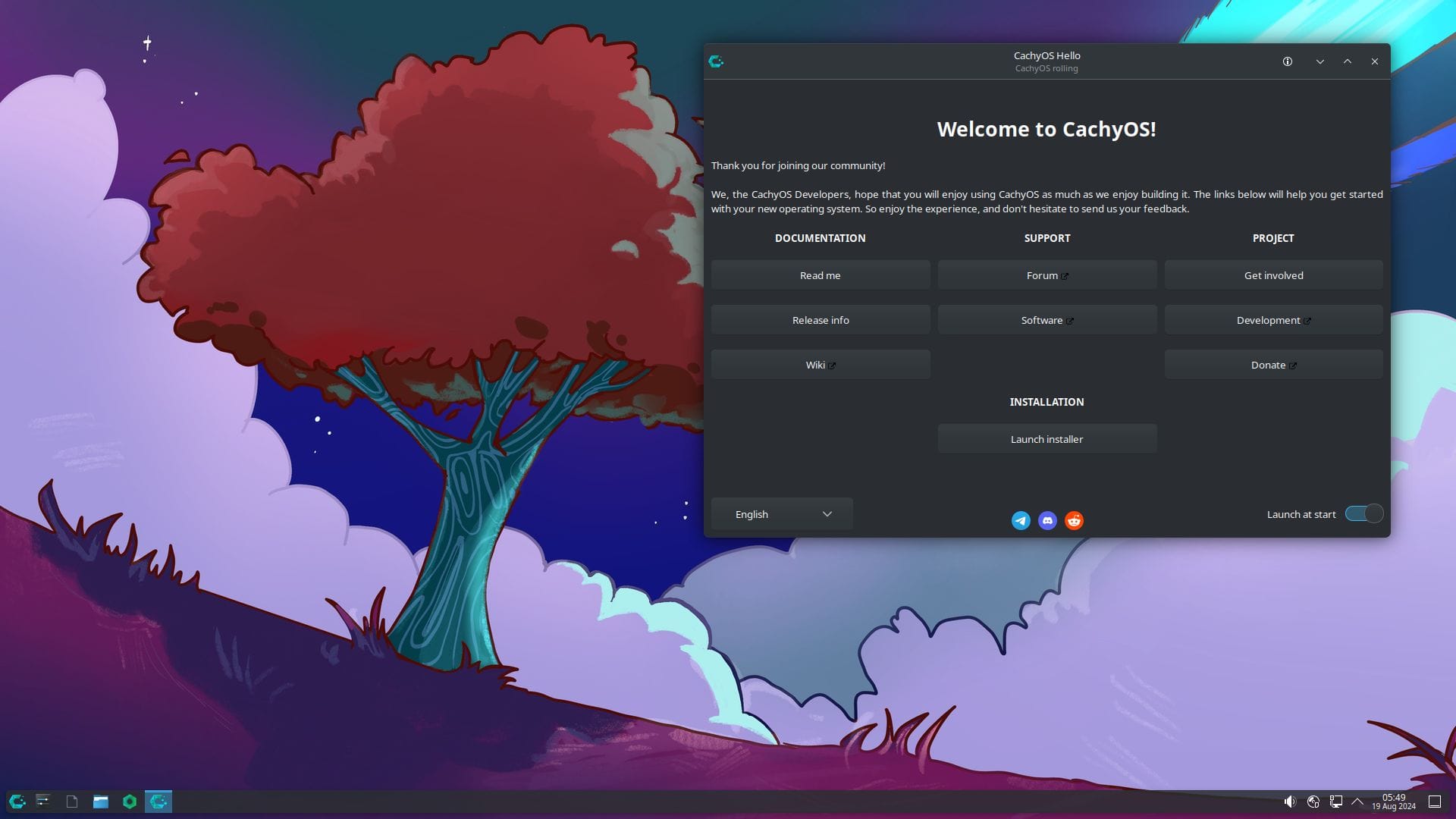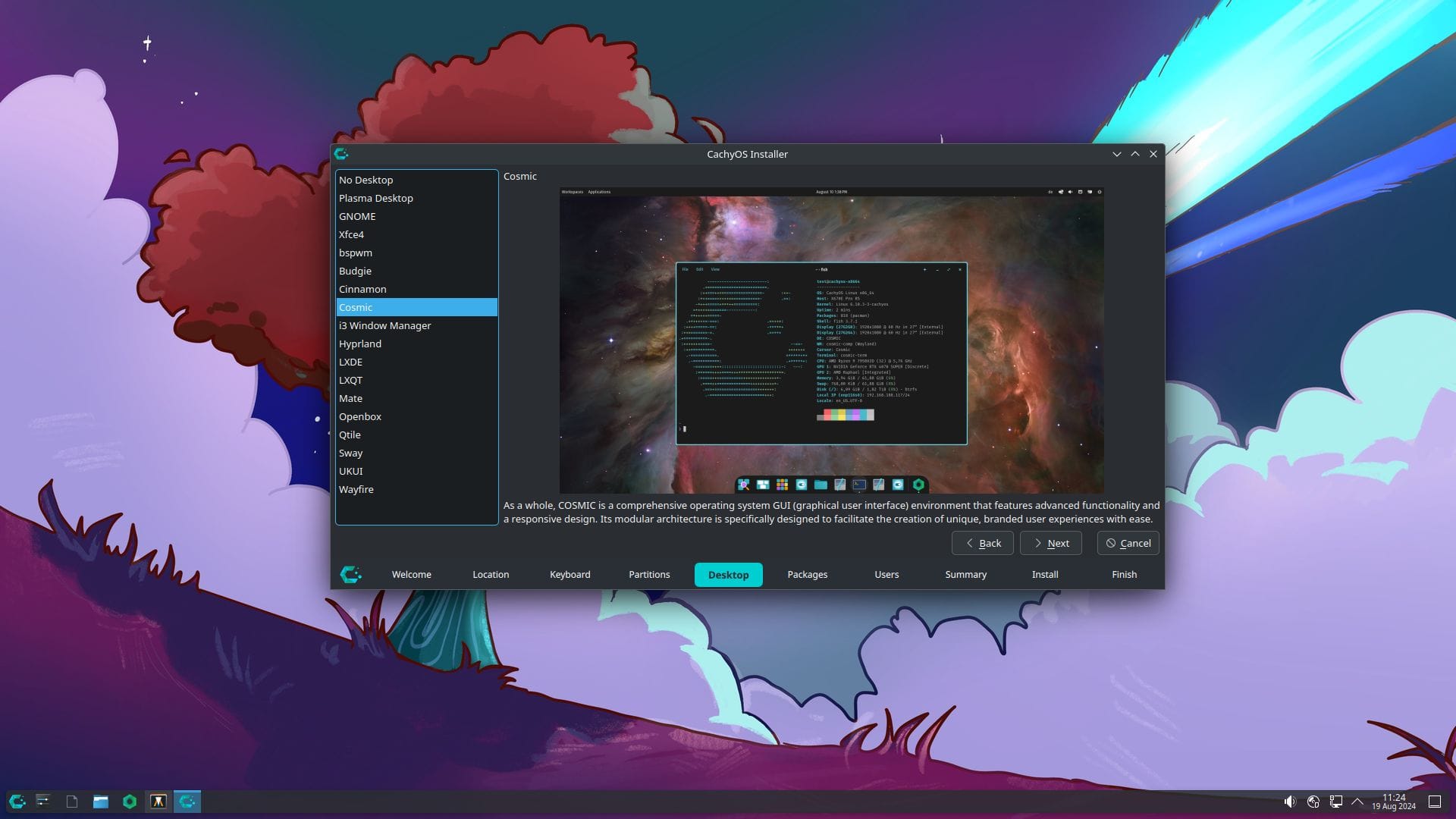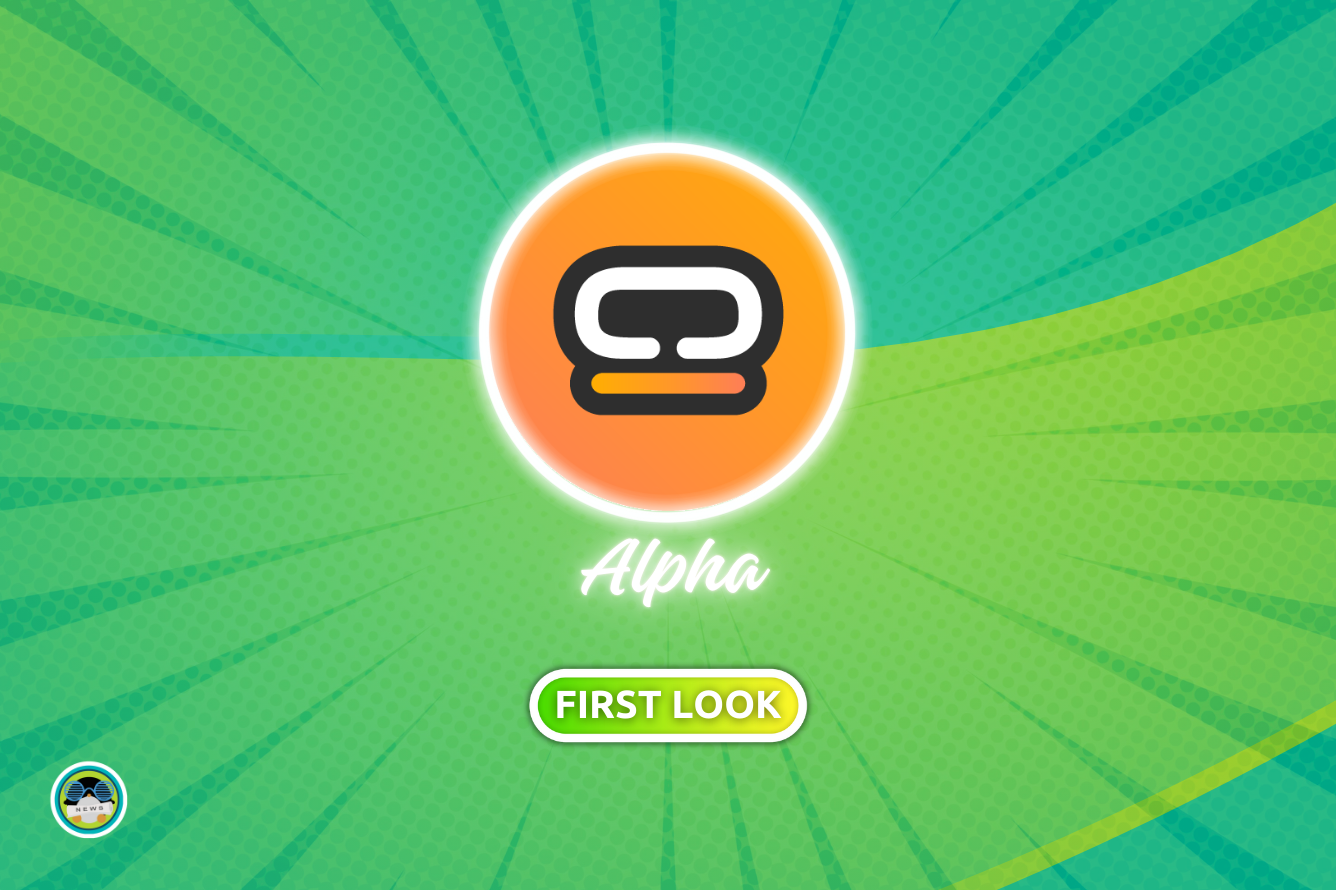
CachyOS is a popular rolling release Arch Linux-based distro which is a good fit for both newbies and experienced Arch users alike.
Months after the June 2024 release, the project's developers have introduced a new CachyOS August 2024 release, with many useful tweaks, and some good news for users of NVIDIA GPUs.
Let's check it out. 😃
🆕 CachyOS August 2024: What's New?

This release comes with Linux kernel 6.10.5-cachyos powering it, alongside KDE Plasma 6.14 as the desktop environment for the flagship desktop edition, and Mesa 24.2.0 handling the graphics side of things.
Some key highlights of this release include:
- NVIDIA Open GPU Kernel Modules
- Inclusion of COSMIC Alpha
- Infrastructure Upgrades
NVIDIA Open GPU Kernel Modules
Beginning with this release, CachyOS's hardware detection will automatically use the recently introduced open-source GPU kernel modules by NVIDIA. Do note that this support is only for GPUs of 20xx series and newer.
To make things even better, the developers have made the beta version of the NVIDIA 560 driver the default on CachyOS after a lot of testing. The kernel manager has also been updated to support building of the NVIDIA-open modules.
Inclusion of COSMIC Alpha

The next upgrade is the adoption of the alpha release of the COSMIC desktop environment in CachyOS, with the developers following the upstream release for packaging.
I checked out COSMIC in the installer when running a virtual machine, and it seemed to install. But, it didn't play nice post installation, and showed me a black screen on reboot. Bare metal should be a better fit for this.
Existing users can get COSMIC by running the following command:
sudo pacman -S cosmic-sessionThis will install the base packages required to run COSMIC, with additional packages to get the Rust-based COSMIC apps such as cosmic-store, cosmic-text, and cosmic-terminal.
I highly suggest you go through my earlier coverage of the COSMIC release on Pop!_OS 24.04 Alpha to learn more about this under-development desktop environment:

Infrastructure Upgrades
The CachyOS team has shared that they now have a new infrastructure sponsor, CDN77, who has equipped them with a global cache CDN, which is set to improve connection speeds for users located around the world.
Now, they are providing a Cache CDN mirror alongside an Arch Linux mirror during installation. Mirror ranking has also been tweaked to select up-to-date mirrors, making way for quicker package installations.
There are fallback mirrors hosted by CachyOS and a Tier 1 mirror from Arch Linux in case the primary ones fail for some reason.
🛠️ Other Changes and Improvements
To wrap this up, there are some other notable changes you should know about:
- libextest was replaced in favor of libei.
- cachy-chroot now has support for LUKS encryption.
- The Handheld edition now supports the ROG Ally X.
- Secure Boot support was improved with the inclusion of a new script and a detailed Wiki page.
- Hardware detection has been improved thanks to the fixes in PRIME/Hybrid Profile detection.
To dive deeper into this release, you will want to go through the release blog.
📥 Download CachyOS
You can download CachyOS from the official website, mirror, or the project's SourceForge page. There are two editions on offer, the Desktop Edition, and the Handheld Edition.
If you are an existing user, then running the following command will get you the CachyOS August 2024 release:
sudo pacman -Syu
For more info, the official upgrade guide is a handy source of information. If interested in the source code, then you can visit the project's GitHub repo.
💬 Are you going to try out this release? If you do, please let me know in the comments below!
- Even the biggest players in the Linux world don't care about desktop Linux users. We do.
- We don't put informational content behind paywall. Your support keeps it open for everyone. Think of it like 'pay it forward'.
- Don't like ads? With the Plus membership, you get an ad-free reading experience.
- When millions of AI-generated content is being published daily, you read and learn from real human Linux users.
- It costs just $2 a month, less than the cost of your favorite burger.
Become a Plus Member today and join over 300 people in supporting our work.











